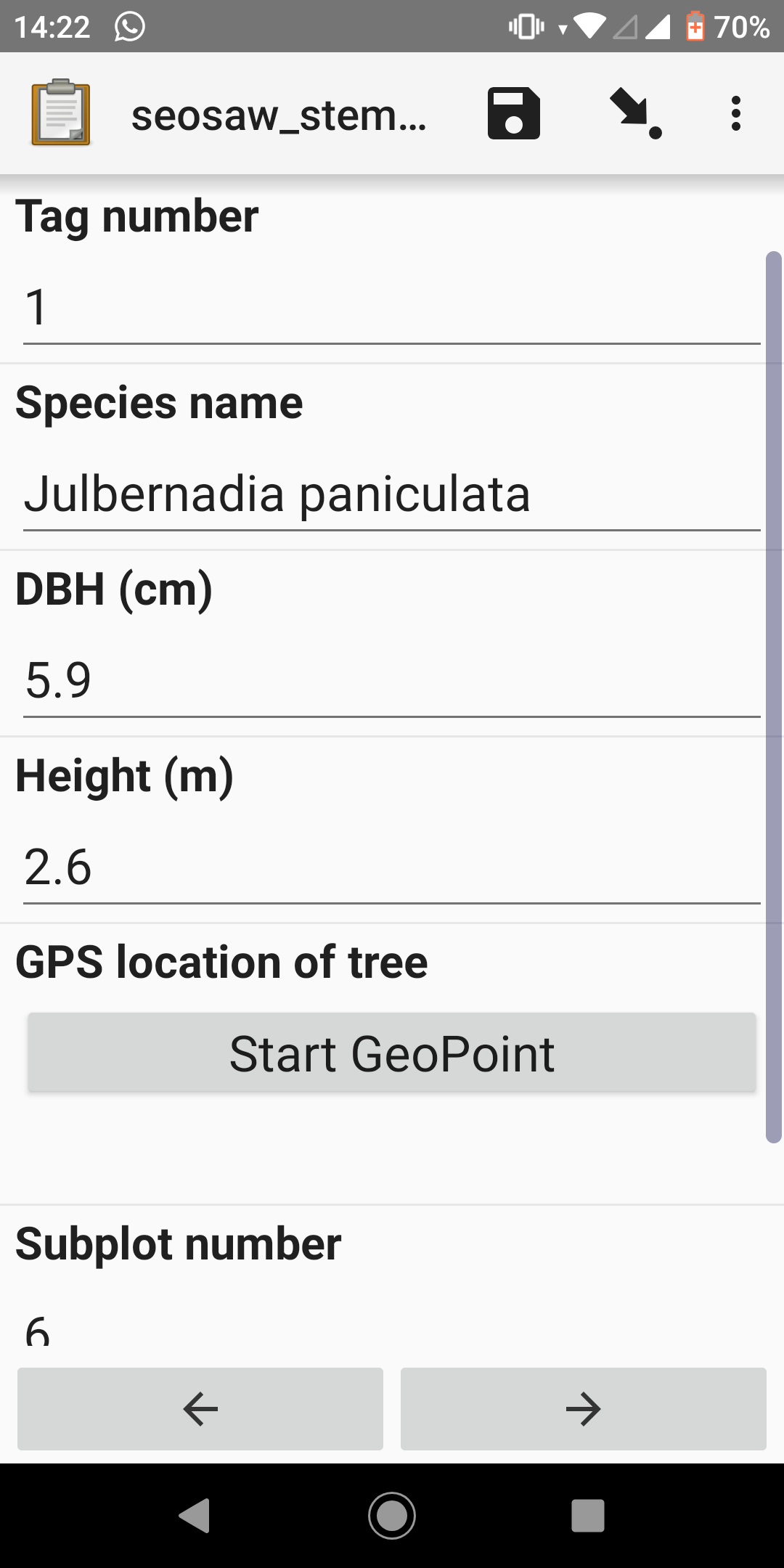TITLE: Taking notes in the field
DATE: 2019-05-05
AUTHOR: John L. Godlee
====================================================================
On fieldwork I like to opt for waterproof notebooks to record
measurements. I prefer the flexibility of being able to construct
tables as I see fit and I think it leads to less wasted paper than
if I used pre-printed data table sheets and a clipboard.
Specifically I use Rite in the Rain hardback lined notebooks (No.
390) which I think are a good size and are very robust, it's just a
shame they cost about GBP15 each.
The main issue I have with using notebooks, or rather using paper
based note-taking in general is that at the end of the fieldwork
there is a lot of copying up the data, days and days and days of
it. In some ways this is good as it allows you to get a first look
at any errors that might have been made, but at the same time more
errors may be introduced through the copying process, which can be
extremely mind-numbing.
Additionally, writing freehand in notebooks or onto printed paper
forms can be quite messy, especially when it is sweaty or wet in
the field.
When I attended a course in plant taxonomy at Kew Gardens last year
I got talking to another researcher who worked at Kew and did lots
of expeditions collecting plant specimens. They have to collect
various information about the location and habit of the plant they
are collecting and they had opted to take notes directly onto their
Android smartphone using a combination of Locus Maps and ODK (Open
Data Kit).

Here is a link to an ODK .xml and .xlsx
Another issue that people often state as a reason for not using
tablets/smartphones is obviously that they need charging, and what
happens if they run out of charge. However, at nearly all the
fieldsites I've worked at, even pretty remote ones, we've had
access to a generator which can be used for charging every night.
Battery packs can also be brought as a backup for charging in the
field or when the generator inevitably breaks, so I don't see this
as a real problem. Additionally, it is important to make sure that
the device is waterproof, otherwise you have to stop work when it
rains. This can be achieved with various phone cases, but I'm
skeptical of phone cases in general, as so many of them are of such
atrocious build quality.